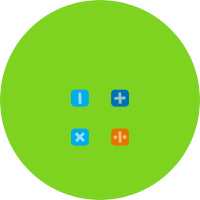AFCAT
AFCAT Examination: An Overview
Introduction:
AFCAT, or the Air Force Common Aptitude Test, is a competitive examination conducted by the Indian Air Force (IAF) to select candidates for entry into various branches of the IAF as Commissioned Officers. This examination serves as the gateway to becoming an officer in the Indian Air Force, where individuals are entrusted with the responsibility of strategizing, planning, organizing, and leading through personal example.
Eligibility Criteria:
Before applying for the AFCAT examination, candidates must thoroughly review the eligibility criteria, including age limits and educational qualifications, specific to the branch they are interested in. These criteria ensure that candidates meet the minimum requirements to pursue a career in the IAF.
Enquiry Form
AFCAT Written Coaching
Personal Attention– One of the key feature of training at LWS is that we give Personal Attention to each candidate, and for this reason we keep limited number of candidates in a class. This also helps the candidates to clarify all their doubts and makes the classes more interactive and meaningful for them.
Written Faculty- The Institute has very experienced teacher in each faculty. We have different faculty for Maths/ English/ General Science (GS). In GS itself we have separate faculty for History and Geography.
Mock Tests- Weekly Mock Tests are conducted to evaluate the performance and monitor progress of candidates. After correction of answer sheets, individual counselling of candidate is done on a weekly basis where the candidate is apprised of his or her performance and inputs are taken on any difficulties faced by them.
Free SSB Orientation & Personality Development for AFCAT Coaching- An important feature of training at LWS is that along with Written Coaching for AFCAT the Institute also focuses on the overall personality development of candidates. For this reason, classes on leadership skills and Personality Development are undertaken periodically by the Specialists Officers I.e. GTO/ Psychologists and Interviewing Officer from the SSB team of Learn With Sumit. During these classes candidates are taught various ways and means to enhance their leadership skills i.e Officer Like Qualities in day to day life through daily practices. It is pertinent to mention that personality development is a slow and dynamic process, and therefore this long duration (six months to one year) for which the candidates are available with us for written coaching; is also utilised towards their personality development. This in turn facilitates them towards long term preparation for SSB which is their ultimate aim, where overall personality of candidates is assessed.
Free SSB Coaching for AFCAT Upon Qualifying Written Exam- Candidates of Learn With Sumit who are undergoing Written Coaching, are being given free SSB coaching after they qualify in written exam.
Free Demo Classes- Candidates who are desirous of joining written coaching for AFCAT will be provided with free Demo classes which will help them to ascertain the quality of classes in each subject.
Free Study Material- Learn With Sumit provides free study material to candidates joining Written coaching for AFCAT.
SALIENT FEATURES OF AFCAT
The AFCAT examination features the following aspects:
Exam Format: AFCAT is an online exam with objective-type questions, including multiple-choice questions. The examination is conducted in English and consists of 100 questions with a total weightage of 300 marks.
Sections: The AFCAT paper comprises four sections:
- English: Covers comprehension, sentence error detection, synonym/antonym, cloze test, and more.
- General Awareness: Encompasses history, geography, sports, current affairs, and more.
- Numerical Ability: Involves topics like time and work, profit and loss, number systems, and more.
- Reasoning and Military Aptitude Test: Tests both verbal and non-verbal reasoning.
EKT (Engineer Knowledge Test): This additional test is specific to candidates opting for the Ground Duty Technical Branch and includes questions related to mechanical, computer science, and electrical & electronics. It consists of 50 questions to be completed in 45 minutes with a maximum of 150 marks.
AFCAT Exam Pattern for Technical Branch
The structure of AFCAT exam pattern for Technical branch is given below.
|
Section
|
Questions
|
Marks
|
Time
|
|---|---|---|---|
|
Reasoning and military aptitude test
|
35
|
105
|
|
|
Verbal ability in English
|
30
|
90
|
|
|
Numerical ability
|
15
|
45
|
|
|
General awareness
|
20
|
60
|
2 Hours
|
|
Mechanics/Computer science/ Electrical and electronics
|
50
|
150
|
45 min
|
AFCAT Exam Pattern for Non-Technical Branch
Candidates who apply for ground duty (non-technical branches) should be aware of the AFCAT exam pattern for non-technical branch. The structure of the non-technical branch is given below.
|
Section
|
Questions
|
Marks
|
Time
|
|---|---|---|---|
|
Reasoning and military aptitude test
|
35
|
05
|
|
|
Verbal ability in English
|
30
|
90
|
|
|
Numerical ability
|
15
|
45
|
|
|
General awareness
|
20
|
60
|
2 Hours
|
System of Marking
(a) Three marks will be awarded for every correct answer.
(b) One mark will be deducted for every incorrect answer.
(c) No marks for unattempted questions.
(d) Before declaration of result, marks scored by candidates will be normalised.
Each year, in February and August, the test is conducted to select Class-I Officers for Flying and Ground Duties (Technical and Non-Technical). Candidates can apply for the AFCAT whether they are male or female.
AFCAT Examination: A Gateway to Diverse Career Opportunities
AFCAT is more than just an entrance examination; it is the gateway to a multitude of exciting career opportunities within the Indian Air Force. Here, we’ll explore the different branches and career prospects available to successful AFCAT candidates:
1. Flying Branch:
- The Flying Branch is one of the most coveted career options in the Indian Air Force. Successful candidates in AFCAT can enter the Flying Branch and train to become pilots.
- Aspiring pilots go through rigorous training and can eventually operate a range of aircraft, including fighter jets, transport planes, and helicopters.
- The opportunity to become a pilot in the Indian Air Force is a dream come true for many aviation enthusiasts.
2. Ground Duty Technical Branch:
- The Ground Duty Technical Branch is for candidates with a technical background, such as engineers and graduates in technical fields.
- This branch involves handling and maintaining the sophisticated technical equipment and systems used by the Air Force.
- It offers diverse roles related to aeronautical engineering, electronics, and other technical areas.
3. Ground Duty Non-Technical Branch:
- The Ground Duty Non-Technical Branch is open to individuals from various educational backgrounds.
- Officers in this branch work in areas such as administration, logistics, and education.
- It includes roles like Administrative Officers, Logistics Officers, and Education Officers, each contributing to the smooth functioning of the Air Force.
4. Short Service Commission (SSC) Entry:
- The SSC entry is an attractive option for those who wish to serve in the Flying Branch but for a shorter duration.
- Officers in the SSC entry typically serve for 14 years, without the option for further extension.
- The Flying Branch through SSC entry is available to both men and women, making it an inclusive career choice.
5. Officer Like Qualities (OLQ) and Personality Development:
- Beyond the technical and academic aspects, the AFCAT examination and the training process also emphasize the development of Officer Like Qualities.
- OLQ includes qualities like leadership, teamwork, communication skills, and decision-making, which are vital for a career in the Indian Air Force.
- Personality development classes and coaching for the Services Selection Board (SSB) interview help candidates enhance their overall personality, equipping them for the challenges and responsibilities of an officer.
6. Marking and Selection Process:
- The selection process for AFCAT involves rigorous testing of candidates’ knowledge, aptitude, and problem-solving skills.
- The marking scheme, with a significant weightage for correct answers and negative marking for incorrect responses, encourages candidates to be precise in their responses.
- Successful candidates are shortlisted for the SSB interview, which assesses not only their academic knowledge but also their personality and leadership attributes.
7. Advertisement Schedule:
- AFCAT advertisements are typically released in June and December, signaling the beginning of the application process.
- Prospective candidates need to keep an eye on these advertisements to ensure they don’t miss the opportunity to apply for this prestigious examination.
In conclusion, the AFCAT examination is not just a test; it’s a door to a world of diverse and rewarding career opportunities within the Indian Air Force. Whether you aspire to be a pilot, work with cutting-edge technology, or contribute to the administration and logistics of the Air Force, AFCAT opens the path to serving your nation in a unique and fulfilling way. It’s a testament to the Indian Air Force’s commitment to selecting the best and brightest to protect the skies of the nation.







